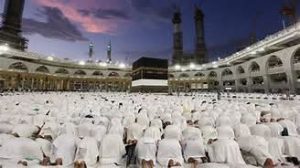
As Saudi Arabia plans for this year’s Hajj pilgrimage, concerns over extreme heat remain a major challenge. Last year, 1,300 pilgrims died, with many fatalities linked to heat stress during the scorching summer temperatures in Mecca, which reached 51.8°C (125°F).
Despite efforts to mitigate risks, such as air-conditioned spaces and cooling materials on roads, experts argue that unregistered pilgrims exacerbate the issue, as they miss out on essential amenities. This year’s Hajj, taking place in June, will once again coincide with the peak of the Saudi summer.
Authorities are expected to enhance heat mitigation measures, including stricter crowd control, but experts warn that mobile cooling units and improved heat stress detection are needed to ensure pilgrims’ safety. Climate change is expected to further intensify heat stress in the coming decades.
Peoplesmind
